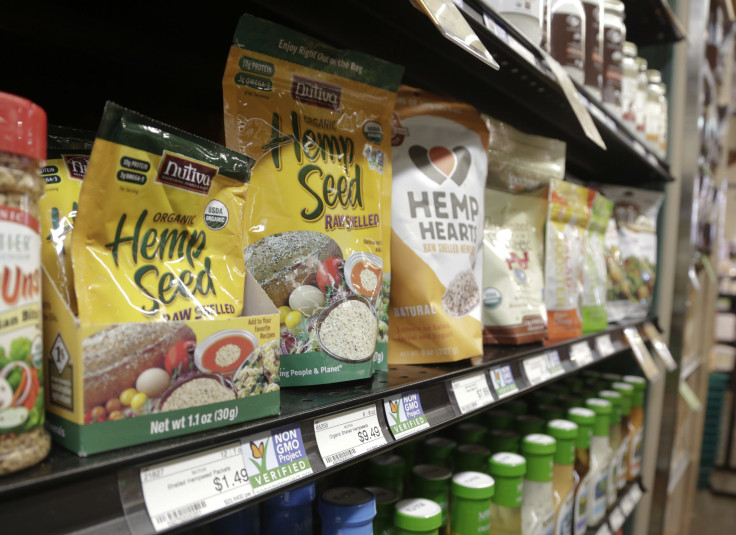GMO Labeling 2015: USDA's First Government Label For Non-Modified Foods Could Help Set National Standard For Certification

The U.S. Department of Agriculture has developed the government's very first label for foods that do not contain genetically modified organisms, or GMOs, according to a letter from the department. The label, a first for the government, may not help quell an ongoing debate over these foods that scientists generally say are safe for humans to eat even though the majority of the public believes otherwise. However, analysts suggested that the label could finally set a national standard for certifying and marking foods that don't have genetically engineered ingredients.
"To the extent that consumers want non-GE [genetically engineered] products, or non GMO products, it's a step in the right direction to have USDA get involved," Greg Jaffe, the head of Center for Science in the Public Interest's biotechnology project, said. "There are numerous non-GMO claims in the marketplace, but it’s unclear to the consumer how valid those are, or what are the standards being used to assert those claims. It’s better to have USDA provide a common standard and procedure so that consumers who want those labels know what they’re receiving,” he added.
The label was developed at the request of an unnamed "leading global company," Agriculture Secretary Tom Vilsack wrote in a letter to employees May 1. It was "the first Process Verified Program claim for non-GMO/GE [genetically engineered] food products," Vilsack continued, and "other companies are already lining up to take advantage of this service."
Details on the certification process, as well as what the label will look like and what information it contains, remain unclear, and Jaffee said it was important that labeling not mislead consumers. "While I understand that there are consumers out there that want to avoid GMOs, there’s not a safety reason to do that," he said. "Any certification system, whether it’s USDA or private certification systems, should not suggest to consumers in any way that the product with this label [GMO-free] on it is somehow safer or better than a similar product without such a label.”
The new government label would not be mandatory, and in fact companies would have to pay in order to get the "USDA Process Verified" stamped on approved foods, the Associated Press reported.
A heated debate over the labeling of foods that contain GMOs has been ongoing in the government and among the public in recent months. Earlier this year, a proposal in the House of Representatives allowed for non-mandatory certification from USDA. The debate has also been taken up at a state level, such as in Vermont, which has a law requiring a label on genetically modified foods that is scheduled to go into effect on July 1, 2016. However, the food industry, which contends that GMOs are safe, has tried to block this law.
Commercial food groups have also tapped into public skepticism over the safety of consuming genetically altered foods. Some say these brands have unnecessarily fanned the flames of that fear by marketing their foods better or safer because they are free of GMOs and by swapping ingredients for genetically unaltered ones.
In April, the popular food chain Chipotle Mexican Grill announced it would be eliminating genetically modified foods and ingredients from its menu because, according to its website, "We don't believe the scientific community has reached a consensus on the long-term implications of widespread GMO cultivation and consumption."
Ben and Jerry's, the ice cream company, has also vocally supported mandatory labeling of foods containing GMOs, albeit on the basis that "GMOs are leading us towards an increasingly consolidated, industrial food system."
© Copyright IBTimes 2024. All rights reserved.












